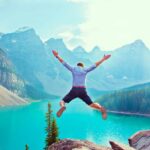The reasons why consumers historically bought luxury items have changed in the last few years. Therefore, the terms that we as business owners use to convey our value proposition also needs to change, or we risk missing out on this trend. I’d like to share a personal experience that has galvanized this lesson in my thinking.
As I write this post, I’m in the middle of purchasing a new vehicle. For the record, I am one of those people who does not replace their vehicles very often, in fact, I drive my vehicles until the preverbal wheels fall off. The vehicle I’m replacing is a Cadillac Escalade that I bought new in 2000. After wearing out the first engine but still having the body and interior in reasonably good shape, rather than replace the entire vehicle, I had the engine rebuilt to avoid buying a whole new vehicle. Finally, after many years of use, our Escalade began to suffer one problem after another, and I grudgingly agreed with my wife that it was time to replace it.
I’ve often thought of myself as somebody who’s not swayed by the prestige factor of a particular product or brand. In fact, as I’ve stated before, my wife often tells our friends that I’m so tight with money that I squeak when I walk. I can hear you asking, “Then why did you buy a Cadillac?” Well, truth be told, back in 2000, I had just sold my first company, so my bank account was full of cash. Additionally, I was hired by Interleaf (this company that brought us) to be their VP of operations. In my role as VP of a publicly held company, I often engaged with high-profile clients. Driving my old Oldsmobile with flaking bondo was not the kind of image I felt the company wanted to portray to these high-profile clients, so I used some of the cash from the sale of my business to buy an Escalade.
Since buying the Escalade in 2000, I had bought my old company back and acquired another one in Wisconsin, packaged them together and sold them again. Today I no longer work with high-profile clients and therefore longer needed to have a ride to telegraph a message about success to potential customers. In fact, in well over the past decade, I have made it a point to consciously not display any tokens of wealth. My principle 4X4 vehicle, as we live at 7,200 feet above sea level at the foot of the Colorado Rocky Mountains, is an old banged up and rusty looking dodge pickup truck that I bought new in 1993 and a 1988 Honda Goldwing motorcycle I have owned for nearly 20 years.
As I embarked on a buying journey to replace my Escalade, I compiled a list of needs and wants that I required in a replacement vehicle. As is my typical style whenever I invest time or money, I do plenty of research on the Internet and read copious amounts of reviews before making any significant purchases.
As someone who feels less susceptible to the gravity of luxury brands, I noticed the ones that were considered more luxurious in nature like BMW and Lexus began to draw me closer. The attraction I had made me start to question why I, too, felt this pull and whether it could have been worse for others. The whole process got me thinking about how marketing luxury brands affect the rational part of our brain.
As I conducted some research in an attempt to discover a possible answer, I came across a 2017 survey conducted by LG about how customer perceptions of what luxury means today are different from just five or 10 years ago. A key takeaway from the study was that people often buy luxury items to feel superior, which was not surprising. We all know the feeling that comes with purchasing a luxury product to display status and understand that it can be a compelling motivator for customers.
Related: A Revealing Behind-the-Scenes Look at Product Attractiveness
Additionally, many in the LG survey said the feeling was better than going on vacation while some said it was even better than sex. However, what I found truly interesting in the LG survey for the small business owner is that luxury items purchased by the affluent have shifted away from purely conspicuous consumption items like jewelry, antiques, and fine art to more performance related items for the home such as kitchen appliances, TVs, and smart tech home upgrades. “Innovative” has replaced “rare” when it comes to the consumer perception of luxury.
While there is still some degree of cachet associated with some brands as a way to demonstrate status through conspicuous consumption, upon further examination, there are other factors at play. What proved to be more interesting and revealing to me, as I began to analyze why some car brands drew me over as compared to others, the answer was mostly about tech.
Looking at the vehicles that made my short list, it was less about observable qualities like leather seats or quality sound systems typically associated with conspicuous consumption and more about the sophisticated technology that drew me to the brand. Accident avoidance features like smart cruise control, lane departure warnings, automatic emergency stopping, traction control features, as well as external cameras to avoid hitting objects, sophisticated navigation systems, and even internet connectivity, were driving my buying decisions.
As I continued with my reflection, I recalled that I recently bought a new refrigerator. What made me buy that particular model was that it had a large touchscreen display with an internet connection. The refrigerator allows us to connect to online recipe sites, play music from our Pandora playlist while we prepare a meal and even displays the news and weather. My epiphany is that, while status remains an important attribute associated with luxury, it no longer is the primary attribute associated with luxury. There is an emerging trend that luxury is being related to high-tech performance rather than with product badging. By integrating high tech gadgetry into your product, you can appeal to the more affluent buyer.
How can you integrate high-tech performance features into your product and service offerings so you can capitalize on the changing definition of luxury?












